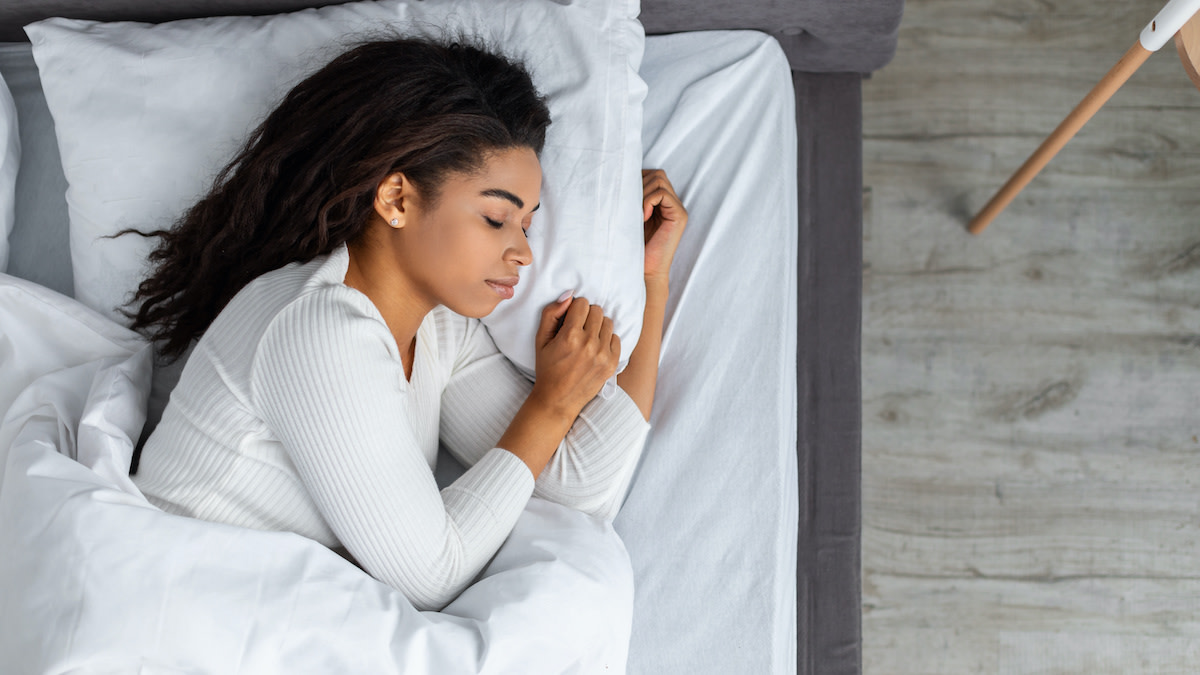How Much Sleep Do You Need? 10 Ways to Get Enough Sleep
Written by MasterClass
Last updated: Jun 7, 2021 • 4 min read
Young kids, teens, and adults all have different sleep needs, so it's important to know how much sleep you need to maintain a healthy body and mind.
Learn From the Best
How Much Sleep Do You Need?
Good sleeping habits are essential for all age groups, but the quantity of sleep you need varies by age. The Center for Disease Control and Prevention (CDC) publishes a recommended amount of sleep for healthy adults and children within each age range.
- Newborns (0–3 months old): 14–17 hours of sleep per day
- Infants (4–12 months old): 12–16 hours of sleep per day
- Toddlers (1–2 years old): 11–14 hours of sleep per day
- Preschool children (3–5 years old): 10–13 hours of sleep per day
- School-age children (6–12 years old): 9–12 hours of sleep per day
- Teenagers (13–18 years old): 8–10 hours of sleep per day
- Adults (18–64 years old): 7–9 hours of sleep per day
- Older adults (65 years old and older): 7–8 hours of sleep per day
Depending on your unique circumstances, an hour more or less than the recommended range might be preferable. In addition, pregnant women in their first trimester may feel drowsy due to hormone changes and require a few extra hours of sleep per day.
Why Is It Important to Get Enough Sleep?
Regularly getting enough sleep is crucial to your overall sleep health. To understand why it's important to get a sufficient amount of sleep, it helps to understand what occurs in your body during the deep sleep and REM sleep stages of sleep. During the deep sleep stage of the sleep cycle, your brain activity slows down and your body focuses on recovery, growth, development, and strengthening your immune system. Next comes the REM (rapid eye movement) sleep cycle, where your brain activity increases and you experience most of your dreams. REM sleep is crucial for maintaining cognitive functions like memory, creativity, and learning.
Consequences of Sleep Deprivation
When you miss out on getting enough deep sleep, your body struggles to recover, which can lead to a weakened immune system. Not getting enough REM sleep—the stage of sleep that helps you retain memories—can lead to memory problems. Mild cases of sleep deprivation may leave you feeling drowsy or unfocused the following day. Chronic sleep deprivation can exacerbate other health conditions, including high blood pressure, diabetes, depression, and cognitive impairment.
10 Tips for Getting Enough Sleep
Practice these positive sleep habits to improve the quantity and quality of your sleep.
- 1. Stick to a sleep routine. Your body’s internal clock aligns with a specific sleep schedule. Going to bed late one night and early the next throws your circadian rhythm off balance. Catching a few extra hours of sleep over the weekend won’t help you fully recover if you’ve accumulated more than a few hours of sleep debt throughout the week. Aim to get to bed around the same time every night and set your alarm for the same time every morning.
- 2. Work out in the morning or afternoon. For some, a midnight workout or intensive yoga session too close to bedtime can make it harder for the brain to wind down. Aim to finish heavy exercise two to three hours before hitting the sack.
- 3. Skip the nightcap and afternoon latte. While alcohol will certainly make you feel sleepy at first, just one alcoholic beverage close to your bedtime can obstruct your sleep cycle, preventing you from getting enough REM sleep and deep sleep. A late-afternoon coffee boost may help get you through the end of your workday, but any caffeine consumed within six hours of your bedtime has the potential to keep you lying wide awake in bed.
- 4. Eat light at night. When it comes to late-night eating, small snacks are preferable to heavy meals, which can cause indigestion that interferes with your sleep. Don’t drink too many fluids, either, or trips to the bathroom could interrupt your sleep cycle.
- 5. Reevaluate your medication regimen. Some heart and lung medications—as well as over-the-counter cold and allergy drugs—can disrupt sleep patterns. If you have trouble sleeping, ask your healthcare provider or pharmacist if these medications could be the culprit and whether you might be able to take them earlier in the day.
- 6. Create a relaxing pre-bedtime routine. Read a book, listen to soothing music, or do some light stretching to prepare yourself for bed.
- 7. Avoid blue light close to bedtime. Electronic devices like smartphones and tablets emit blue light that can interfere with your sleep habits.
- 8. Keep your bedroom cool. To reach deep sleep, your body temperature cools down from its normal waking condition. Keeping a cool sleep environment (around 65 degrees Fahrenheit) will help you drift off to sleep.
- 9. Keep your naps short and early. Evening and late afternoon naps can impact your nighttime sleep schedule. Daytime napping before three o'clock is acceptable, as long as you keep your naps short; you only need about 20 minutes of sleep to boost your mood and energy levels.
- 10. Seek medical advice for sleep disorders. Sleep apnea, narcolepsy, and restless leg syndrome can greatly affect your sleep patterns, as can anxiety and depression. Consult a doctor for help getting yourself back on a healthy sleep schedule.
Want to Learn More About Catching Those Elusive Zs?
Saw some of the best darn logs of your life with a MasterClass Annual Membership and exclusive instructional videos from Dr. Matthew Walker, the author of Why We Sleep and the founder-director of the Center for Human Sleep Science at the University of California, Berkeley. Between Matthew’s tips for optimal snoozing and info on discovering your body’s ideal rhythms, you’ll be sleeping more deeply in no time.
